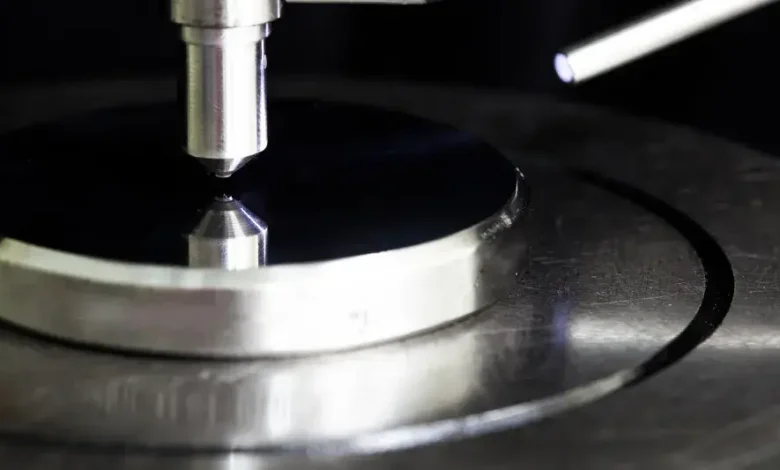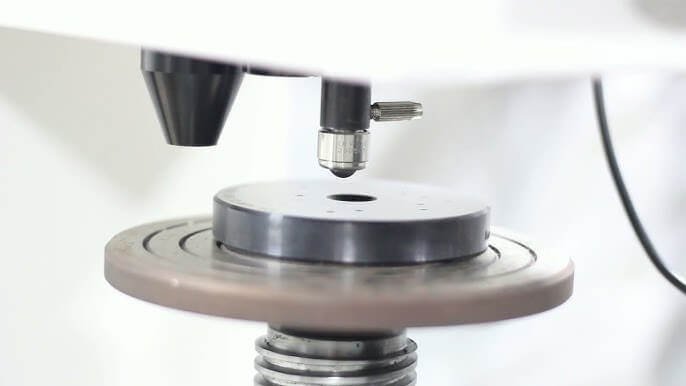Businessnewstips.com Guide on How to Choose the Right Brinell Hardness Tester for Your Industry Needs

Understanding the hardness of materials is critical in many industries, including automotive, aerospace, manufacturing, and metallurgy. Hardness testing, particularly the Brinell Hardness Test, provides valuable insights into material properties, ensuring quality and performance standards.
Choosing the right Brinell hardness tester can be overwhelming given the variety of models, features, and specifications. This comprehensive guide by Businessnewstips.com will help you make an informed decision tailored to your industry needs.
What Is a Brinell Hardness Tester?
The Brinell hardness tester measures the hardness of materials by applying a specific load on a hardened steel or tungsten carbide ball pressed into the test material. The indentation left by the ball is measured, and the hardness value is calculated using a specific formula.
Applications of Brinell Hardness Testing
- Metalworking: Assessing the durability and wear resistance of metals.
- Automotive: Ensuring the reliability of engine components and gears.
- Aerospace: Testing lightweight yet strong materials like aluminum alloys.
- Construction: Evaluating the hardness of structural components.
Factors to Consider When Choosing a Brinell Hardness Tester
1. Industry Requirements
Your industry significantly influences the type of Brinell hardness tester you need.
- Heavy-duty manufacturing: Requires testers with higher load capacities and durable designs.
- Quality control laboratories: Might prefer testers with enhanced precision and digital display systems.
2. Material Type
Different materials require different testing capabilities:
- Metals (steel, aluminum): A standard tester with a 10 mm ball and 3,000 kg load is sufficient.
- Non-metals (plastics, ceramics): Look for testers with adjustable load options.
3. Testing Frequency
Consider how frequently you’ll use the tester:
- High-volume testing: Opt for automated or semi-automated models to save time and increase accuracy.
- Occasional testing: A manual tester may suffice.
4. Portability and Size
- Fixed testers: Suitable for labs and production facilities.
- Portable testers: Ideal for fieldwork or on-site testing.
Types of Brinell Hardness Testers
1. Manual Brinell Hardness Testers
- Operated manually; cost-effective.
- Best for small-scale testing.
- Requires skilled personnel for accurate results.
2. Digital Brinell Hardness Testers
- Equipped with digital displays and software for precise readings.
- Stores data for future analysis.
- Suitable for quality control labs.
3. Automated Brinell Hardness Testers
- Fully automated systems with minimal human intervention.
- Capable of handling large testing volumes.
- Often integrated into production lines.
4. Portable Brinell Hardness Testers
- Compact and easy to transport.
- Ideal for testing large, immovable objects.
- Commonly used in construction and fieldwork.
Key Features to Look for in a Brinell Hardness Tester
1. Load Range
The load range should match the material you’re testing.
- Standard testers operate with loads between 500 kg and 3,000 kg.
- Adjustable-load testers offer versatility for different materials.
2. Ball Indenter Material
- Hardened steel balls are standard but wear out faster.
- Tungsten carbide balls are more durable and ideal for hard materials.
3. Accuracy and Precision
Ensure the tester meets international standards like ASTM E10 or ISO 6506-1 for consistent and reliable results.
4. Ease of Use
User-friendly interfaces, such as touchscreen controls and software integration, improve usability and efficiency.
5. Data Storage and Connectivity
- Modern testers store results digitally, enabling quick access and analysis.
- Models with USB or Wi-Fi connectivity can transfer data directly to computers.
6. Durability and Maintenance
- Look for robust designs that withstand harsh industrial environments.
- Choose a tester with easily replaceable parts for low maintenance.
Step-by-Step Guide to Selecting the Right Brinell Hardness Tester

Step 1: Define Your Requirements
- Identify the materials and load ranges you’ll be working with.
- Determine the volume and frequency of tests.
Step 2: Research Available Models
- Compare brands and models based on your industry needs.
- Check for certifications and compliance with industry standards.
Step 3: Evaluate Key Features
Focus on critical features like load capacity, ball indenter material, and accuracy.
Step 4: Set a Budget
- Manual testers are more affordable, while digital and automated models are expensive.
- Consider long-term benefits like reduced labor costs and increased efficiency.
Step 5: Test Before Purchase
- Request a demo to evaluate the tester’s performance.
- Verify compatibility with your existing systems.
Step 6: Check Support and Warranty
- Ensure the manufacturer offers good after-sales support.
- A warranty period of at least 1-2 years is recommended.
Top Brands for Brinell Hardness Testers
1. Mitutoyo
- Known for precision and durability.
- Offers a range of manual and digital testers.
2. Wilson Hardness
- Features automated systems with advanced software.
- Popular in high-volume industrial applications.
3. King Tester
- Specializes in portable hardness testers.
- Widely used in construction and fieldwork.
4. AFFRI
- Provides state-of-the-art automated solutions.
- Focuses on innovation and user-friendly designs.
5. Tinius Olsen
- Offers versatile testers for diverse materials.
- High reliability and compliance with global standards.
Common Mistakes to Avoid
1. Ignoring Industry Standards
Always select a tester compliant with ASTM or ISO standards to ensure consistent results.
2. Overlooking Material Compatibility
Using the wrong tester for a specific material can lead to inaccurate readings or equipment damage.
3. Focusing Solely on Price
While cost is important, prioritize features, durability, and long-term benefits over the initial price.
4. Neglecting Maintenance Costs
Choose testers with readily available spare parts and affordable maintenance services.
Benefits of Choosing the Right Brinell Hardness Tester
- Enhanced Product Quality: Ensures materials meet industry standards.
- Increased Efficiency: Reduces testing time and minimizes errors.
- Cost Savings: Prevents material wastage and production delays.
- Regulatory Compliance: Meets quality assurance standards.
Conclusion
Selecting the right Brinell hardness tester is a crucial decision that impacts the quality and efficiency of your operations. By considering your industry requirements, material types, testing frequency, and budget, you can find a tester that meets your specific needs.
Investing in a reliable and accurate Brinell hardness tester will enhance your production processes, ensure compliance with industry standards, and ultimately contribute to your company’s success.
For more detailed insights and product reviews, visit Businessnewstips.com today!




